WARNING: This post contains violent or graphic images that may disturb some people, discretion is advised.

Filipino-Canadians are speaking out about the horrific violence sweeping across the Philippines as President Rodrigo Duterte continues his brutal crackdown on drugs that has left thousands dead in just a few short months.
Duterte — elected in May amid promises to wage a deadly campaign against drugs — appears to be making good on his word as more than 5,000 people have been killed since he took office at the end of June.
More than 2,000 have been killed by the police in anti-drug operations. Human rights groups estimate more than 3,000 others have been victims of extrajudicial or vigilante-style killings.
READ MORE: Rodrigo Duterte sounds off on U.S. ‘monkeys’ for halting gun sale

Some in Canada’s Filippino communities have watched in horror as the “reprehensible” violence is carried out by police and vigilantes in the Philippines.
“To any person who values human life and values due process this is obviously reprehensible,” said Joe Zagala, Ontario representative for the non-profit society, Canadian Filipino Net. “What makes this really, really bad is … these killings are at least encouraged if not directed by the highest person in the land.”
Indeed, Duterte has a knack for making fiery, hyperbolic speeches. He vowed to kill 100,000 criminals in his first six months in office and dump enough bodies in Manila Bay that the “fish will grow fat.”
“Hitler massacred three million Jews. Now, there is three million drug addicts. I’d be happy to slaughter them,” Duterte said in September, comments he later apologized for after an international firestorm. He’s also called U.S. President Barack Obama a “son of a whore,” and joked about the rape and murder of an Australian missionary.
IN PHOTOS: The deadly toll of Duterte’s war on drugs (WARNING: This gallery contains violent images, discretion is advised)
And while his outrageous comments have been condemned by world leaders, his tough on crime stance and anti-corruption views have made him popular in the Philippines.
One poll, conducted in late September, found that 83 percent of Filipinos had “much trust” in him, compared with 84 percent in June. A separate poll showed his trust rating falling slightly, to 86 percent in September from 91 percent in July.
READ MORE: With death toll rising, Rodrigo Duterte seeks to extend Philippine war on drugs
Emmie Joaquin, editor-in-chief of the Pilipino Express community newspaper in Winnipeg, has four siblings who live in the Philippines and gets emotional when discussing the violence. She has heard first hand from her brother, a journalist, details and reports of the daily violence.
“I am very disappointed, and very disgusted,” Joaquin told Global News.
Joaquin said she had followed the election in her former country closely and believed Duterte, the former mayor of Davao City in the southern Philippines, would clean up corruption.
WATCH: What you need to know about Philippine President Duterte’s deadly anti-drug campaign
Instead people are being killed for crimes without ever seeing a courtroom and being on a police “drug watch list” can be enough to get a person killed.
“Everybody should have his or her day in court,” Joaquin said. “A criminal is also a father, a mother, a daughter, a son. They are human beings; they have the right to be heard. Especially if they are falsely accused.”
A member of Toronto’s Canadian-Filipino community, who asked not to be identified because he has family members in the Philippines government, said many are divided on Duterte’s actions.
“Positions have been entrenched by Duterte’s actions,” he told Global News. “Those very much in favour of this iron-fisted approach feel like this is what they elected and supported in the president. And those against it are saying ‘this is what we were concerned about.’”
All those who spoke with Global News said they are concerned for family and friends living in the Philippines, who could become unintended victims of the violence.
Human rights groups have been raising the alarm over the increasing violence. Human Rights Watch says that while 68 people were killed during anti-drug operations from Jan. 1 to June 15, 2016, there have been more than 5,000 in the last five and a half months.
Phelim Kine, deputy director of Human Rights Watch for Asia, says there is growing evidence showing that some of the killings have been summary executions by police and could signal the emergence of death squads.
“The vast majority of the victims to date in this so-called ‘war on drugs’ have been some of the Philippines’ poorest, most marginalized and most vulnerable people: residents of urban slums,” Kine said in an email to Global News. “While the government frequently crows about targeting so-called ‘drug lords,’ in fact the victim profile of the majority of these victims are unemployed or underemployed slum dwellers who barely eke out daily subsistence.”
WATCH: Philippine president Duterte ordered killings of 1000 people, former hitman testifies

The recent murder of a mayor in the southern province of Maguindanao while in police custody has also challenged the narrative of Duterte’s drug war.
Mayor Rolando Espinosa Sr., and another inmate, died in their cells after a shootout with police on Nov. 5.
The National Bureau of Investigation, similar to the United States’ FBI, said on Tuesday it determined the two inmates died in a police “rub out.” The NBI said the police had probably placed guns and drugs in the cells of the two dead inmates to justify the police raid.
WATCH: Philippines’ president-elect turning heads around the world

Global Affairs said Canada is closely following the developments in the Philippines.
“The promotion and protection of human rights is central to Canada’s global engagement with countries around the world, including with the Philippines,” Global Affairs spokesperson Kristine Racicot told Global News in an email. “For this reason, Canadian officials raise the issue and the importance Canada places on those rights at every opportunity, including most recently in discussions between Minister of Foreign Affairs Dion and his Filipino counterpart on the margins of APEC in November 2016.”
Global Affairs said Canadians travelling to or living in the Philippines are advised to exercise a high degree of caution. More information on travel advisories for the Philippines can be found here.
— With files from Reuters
- ‘Shock and disbelief’ after Manitoba school trustee’s Indigenous comments
- Invasive strep: ‘Don’t wait’ to seek care, N.S. woman warns on long road to recovery
- ‘Super lice’ are becoming more resistant to chemical shampoos. What to use instead
- Canadian food banks are on the brink: ‘This is not a sustainable situation’



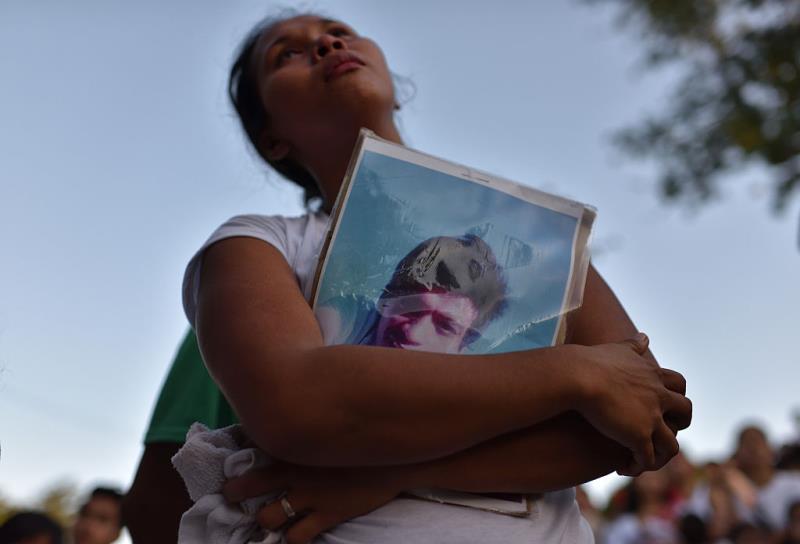

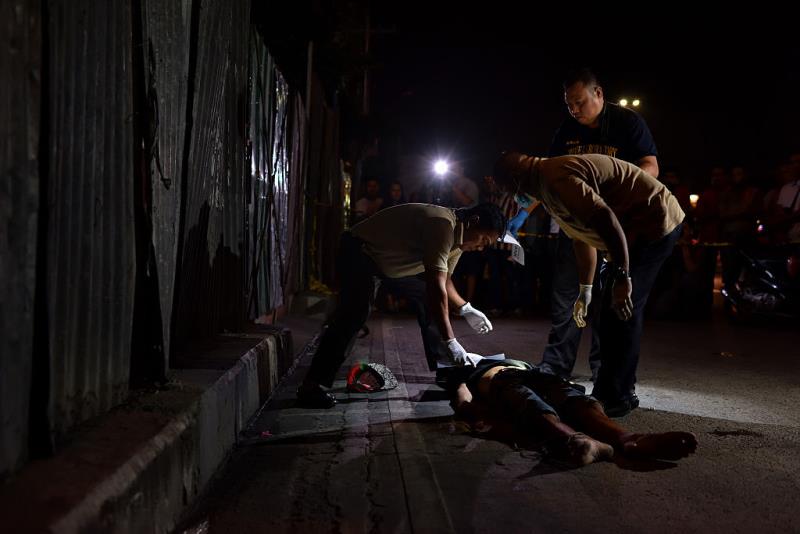



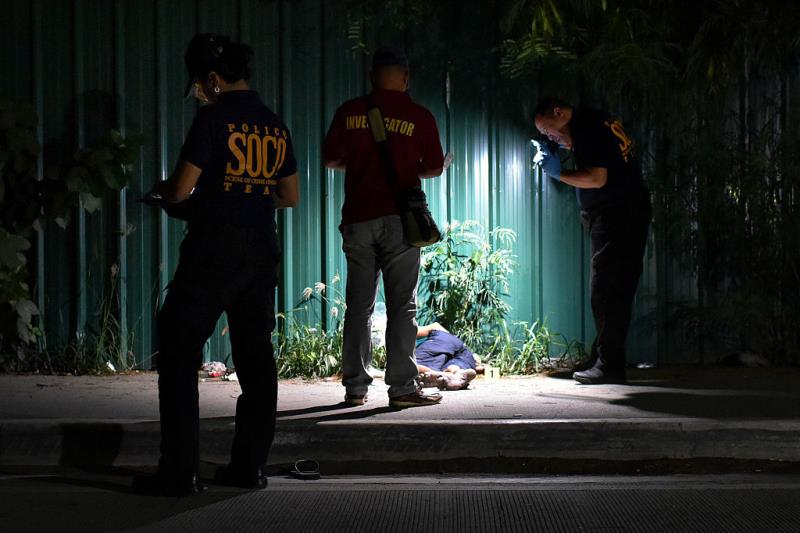



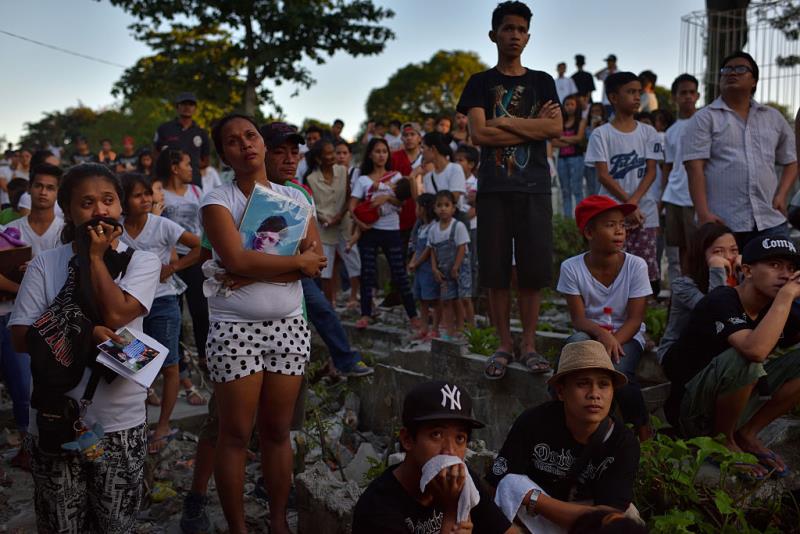

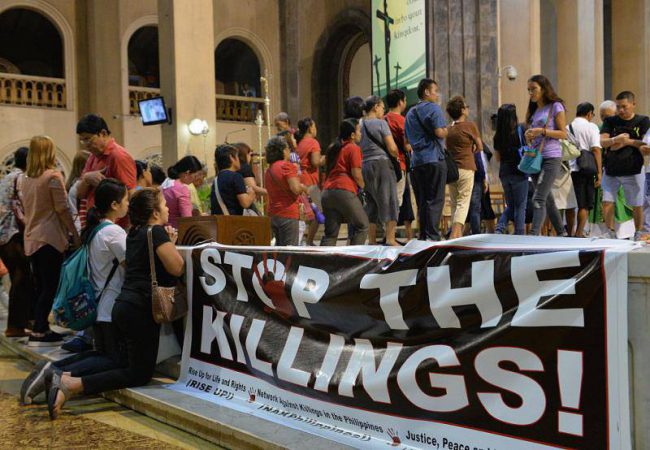















Comments